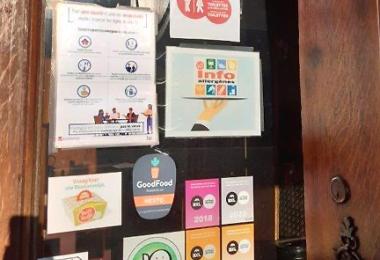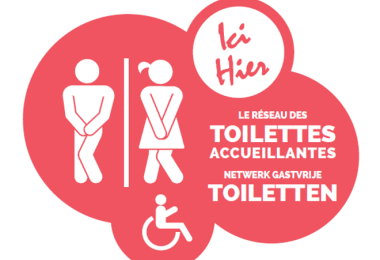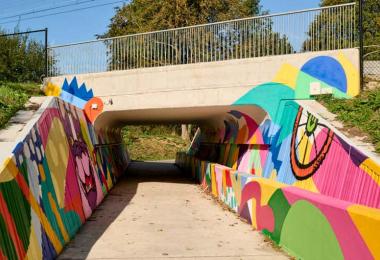8
Prepare for the city of the future by adopting practices with regard to urban planning, infrastructure and service provision that promote cleanliness
Measures
31. Developing the networks of public toilets and urinals in the Brussels region along the lines of the City of Brussels ‘welcoming toilets’ initiative.
Highlighting and monitoring the initiatives for the development of networks of public toilets and urinals in the Region, and more specifically at municipal level, along the lines of the ‘welcoming toilets’ project of the City of Brussels.
In April 2021, the City of Brussels launched a ‘toilet plan’ aimed at creating a network of toilets that are welcoming and open to the public.
The network of welcoming toilets is a partnership between the City of Brussels, hotels, restaurants and cafés and a number of cultural spaces. Within a relatively short time it has led to an increase in the number of accessible toilets. The network’s purpose is to encourage establishments to open their toilets to the general public free of charge and with no requirement to make a purchase, while the City of Brussels supports participating establishments by providing grants for the use and cleaning of their toilets.
An initiative of the City of Brussels


32. Developing the buried glass recycling containers of Bruxelles-Propreté and the buried textile recycling containers of the RESSOURCES Federation with a view to decluttering public spaces and reducing fly-tipping at these sites. This project concerns around 50 buried recycling containers per year.
The development of the Bruxelles-Propreté’s network of buried glass recycling containers and the network of buried textile recycling containers by the members of the RESSOURCES Federation with a view to decluttering public spaces and reducing fly-tipping at these sites. The aim of having buried glass recycling containers is to declutter public spaces, reduce fly-tipping and exert a certain amount of social control. The initiative is still in progress and involves the creation of around fifty buried recycling containers every year. The containers are installed in coordination with Brussels Mobility.
33. Studying and encouraging the optimal solution in the Brussels region from an environmental point of view between door-to-door waste collection and voluntary buried drop-off points.
Analysing and seeking to reconcile the environmental objectives of selective collection of household waste by means of rubbish bags and the advantages of opting to make more widespread the collection of household waste via buried voluntary drop-off points in the Brussels-Capital Region.
34. Designing public spaces and urban developments taking cleaning-related factors into account in order to ensure optimal management of their cleanliness over time.
Introducing the issues associated with and technical characteristics of cleaning activities, upstream of the design of public spaces and of urban amenities in the broad sense of the term, in coordination with the stakeholders, in order to ensure optimal management of the cleanliness of areas downstream. These considerations are taking concrete form in the compilation of a guide listing good practices for the design of amenities. Bruxelles-Propreté appoints a SPOC, who can be invited to meetings with Brussels Mobility and who can in particular be involved in developing the Urban.brussels ‘manual of public spaces’ in order to take better account of these questions in preliminary studies.
35. Encouraging urban expression through the creation of murals, in order to engender a sense of ownership of public spaces with a view to reducing graffiti.
Under the supervision of the public authorities, encouraging urban expression through the creation of murals or other artistic endeavours, in order to engender a sense of ownership of public spaces aimed at reducing graffiti.
In May 2022, Brussels Mobility launched a call for projects to decorate an entrance to the Rogier metro station. The call was addressed to adult urban mural artists – painters, illustrators and so on – whether practising individually or within a collective. The project concerns the ceiling of the entrance to the station, which is currently a concrete slab painted black. Short-listed projects were put to a public vote to take account of the opinion of local residents and metro users.
At the end of 2020, Infrabel organised a local cross-disciplinary project with Belgian artists and two third year primary classes, who together created works of street art on the walls of underpasses replacing level crossings in Jette and Ganshoren. The highly colourful works relate to the themes of the environment, sustainable mobility and innovation.
An initiative of Brussels Mobility and Infrabel

